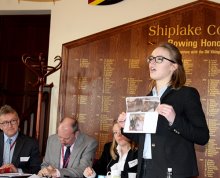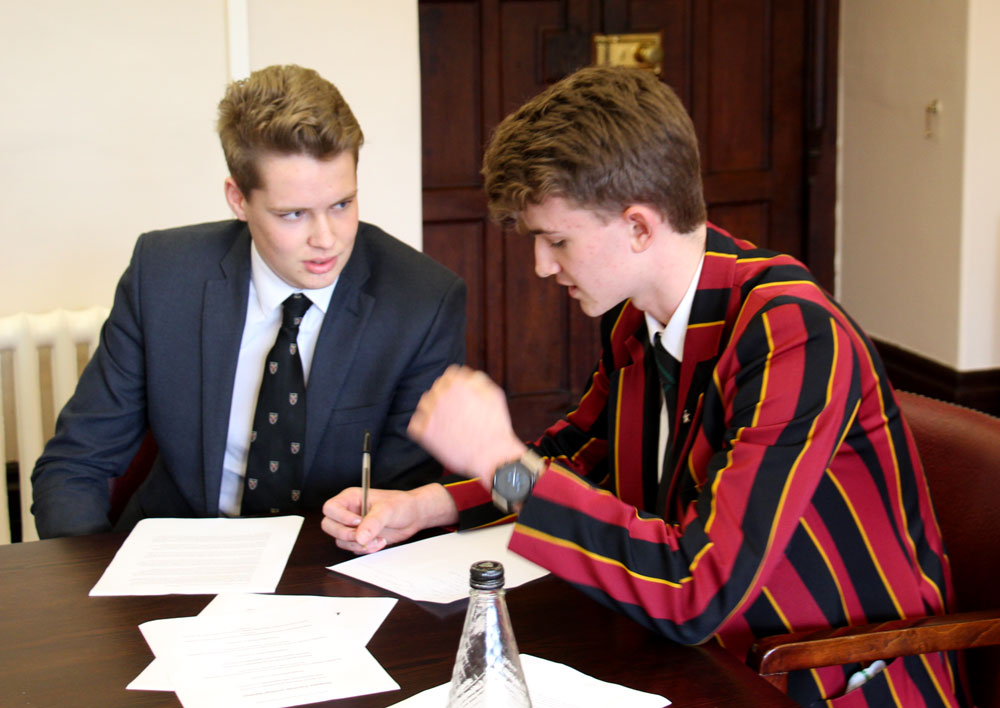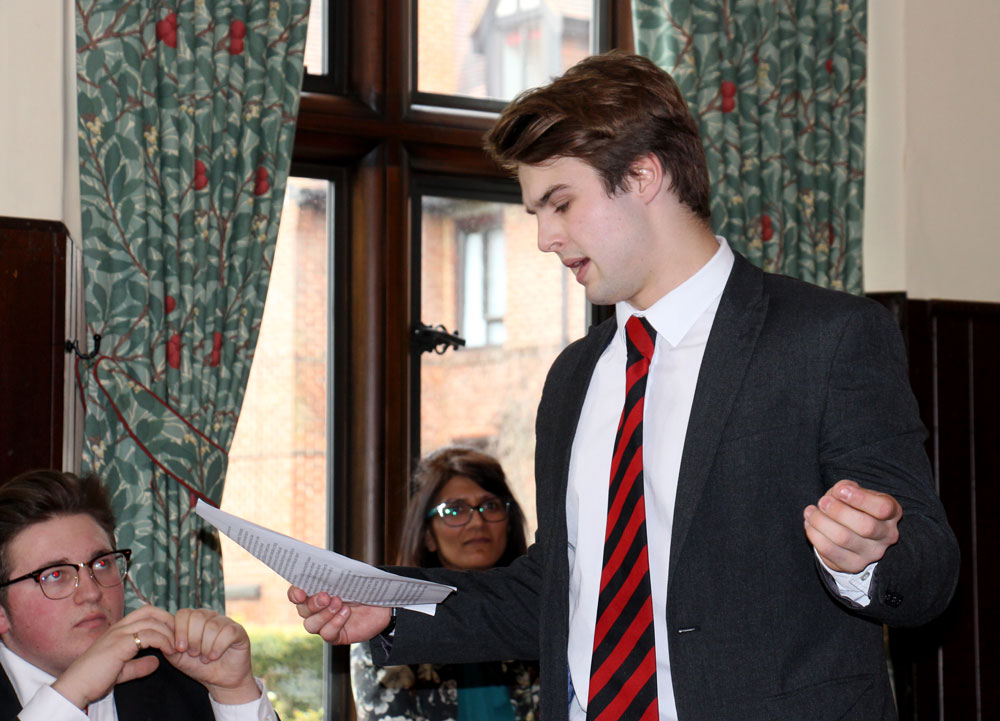
The first round of inter-house debating took place on Wednesday and Thursday this week, with teams from each of the houses taking on either the proposition or the opposition for a variety of topics. The heats are well under way, leading up to the final debate, which will take place in the Lecture Theatre on Tuesday 22 March at 7.00pm. Arguments so far have included lowering the voting age to 16, and the pros and cons of fracking.
Wednesday’s debate saw Eggar and Bevan pitted against each other, taking on the controversial topic of lowering the voting age to 16. Making up the Eggar team, Eliott Jordan and Marcus Bagshawe argued that the voting age should indeed be lowered to 16. Arguing that at the age of 16, people are allowed to get married, leave home, enter full time employment and even become parents, the fact that having an active voice in politics is still off limits is prejudice and shows intolerance. The opposing team from Bevan, made up of Spencer Smith and Brett Fullard, suggested that pupils who have not studied politics before the age of 16 would be voting without an in-depth knowledge of the political landscape and the possibilities of different political parties in power. The crossfire questions round followed, which saw both teams thinking on the spot, posing difficult questions that could alter the oppositions’ main arguments. Despite a close contest, the judging panel (made up of Mr Kevin Bloor, Mr Darius Bluck and Mr Richard Curtis) decided that the proposing team, Eggar, were the winners, with 183 points to Bevan’s 180.
 Thursday’s debate saw Everett take on Gilson in the argument over fracking. James Martin and Greg Cooke argued for fracking in the UK, posing the creation of jobs in an unstable economic climate as the main reason for this. They also effectively argued that scientific research fails to back up the idea that fracking is responsible for earthquakes and illnesses, and that the suggestion of this in the media is little more than a scare-mongering tactic. A compelling argument indeed, but one that the Gilson team (made up of Claire Fifield and Emily Wilkinson) were more than able to refute. Their argument was based on case studies of families in area where fracking takes place, and the high percentage of illnesses occurring here. They also suggested that using fracking as a way to create jobs was not only economically unstable, but was also exploitative of the working class, working with dangerous chemicals and metals. Instead, the Gilson team argued that spending time and money on nurturing sustainable resources, such as wind, was an effective long-term plan.
Thursday’s debate saw Everett take on Gilson in the argument over fracking. James Martin and Greg Cooke argued for fracking in the UK, posing the creation of jobs in an unstable economic climate as the main reason for this. They also effectively argued that scientific research fails to back up the idea that fracking is responsible for earthquakes and illnesses, and that the suggestion of this in the media is little more than a scare-mongering tactic. A compelling argument indeed, but one that the Gilson team (made up of Claire Fifield and Emily Wilkinson) were more than able to refute. Their argument was based on case studies of families in area where fracking takes place, and the high percentage of illnesses occurring here. They also suggested that using fracking as a way to create jobs was not only economically unstable, but was also exploitative of the working class, working with dangerous chemicals and metals. Instead, the Gilson team argued that spending time and money on nurturing sustainable resources, such as wind, was an effective long-term plan.
 It was an incredibly close debate; the packed OVR listened avidly to the two arguments. The crossfire rounds were well-argued and engaging, and the judges were enthralled. However, there could only be one winner, and it was Gilson who edged the victory with 81 points to Everett’s 76. The judging panel, made up of Deputy Head Pastoral Mr Nick Brown, Headmaster Mr Gregg Davies and Head of Drama Mrs Jenny Nunes gave encouraging and insightful comments about the debate, saying that it was ‘incredibly entertaining, with humour and sincerity in just the right measure. We look forward to the rest of the rounds!’
It was an incredibly close debate; the packed OVR listened avidly to the two arguments. The crossfire rounds were well-argued and engaging, and the judges were enthralled. However, there could only be one winner, and it was Gilson who edged the victory with 81 points to Everett’s 76. The judging panel, made up of Deputy Head Pastoral Mr Nick Brown, Headmaster Mr Gregg Davies and Head of Drama Mrs Jenny Nunes gave encouraging and insightful comments about the debate, saying that it was ‘incredibly entertaining, with humour and sincerity in just the right measure. We look forward to the rest of the rounds!’





















